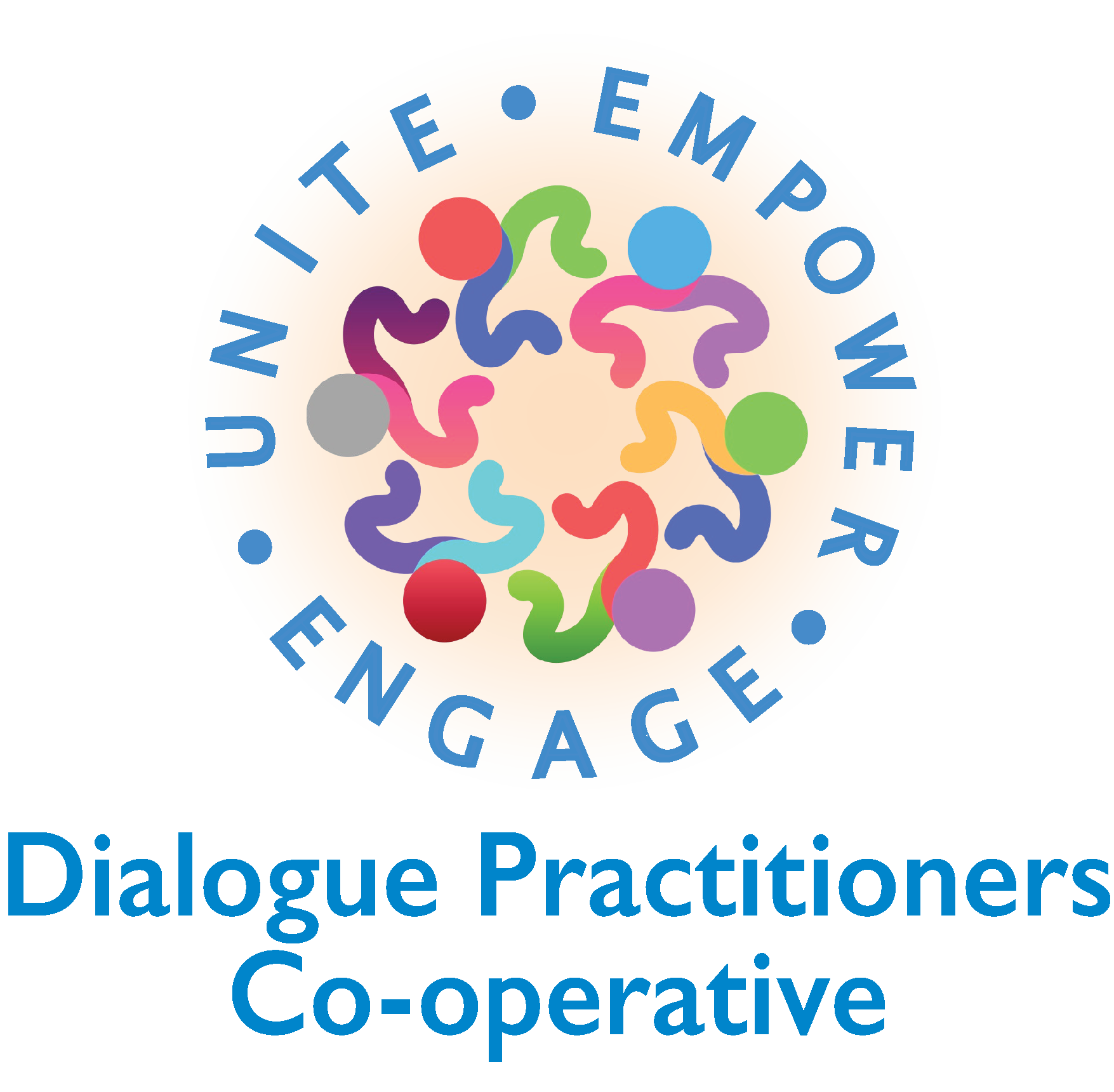
Introducing the Dialogue Practitioners Co-Operative
We’re excited to introduce the Dialogue Practitioners Co-op (DPC) – the first peacebuilding cooperative of its kind in the UK and Ireland.
Born from the legacy of Community Dialogue (CD), a charity founded in 1997 during Northern Ireland’s Peace Process, DPC carries forward our deep commitment to dialogue, reconciliation, and transformation.
Rooted in CD’s vision, mission and values, the Co-op is a bold new step in continuing our work – building connections, breaking down barriers, and creating lasting peace.
DPC is:
-
Nurturing empathy and strengthening social cohesion – cultivating meaningful connections across communities.
-
Creating space for courageous conversations – fostering belonging, build unity, and imagine a shared future together.
-
Driving grassroots transformation – reconnecting communities from the ground up and deepening our shared humanity.
-
Envisioning a new future – one where we are united, empowered, and actively engaged in shaping a more inclusive society.
Origins of DPC
Responding to a changing funding environment, we sought a transformative new way to sustain
our vision, mission, and legacy. DPC achieves this by changing the business model and becoming a co-operative of experienced peace-building practitioners.
We adopted CD’s vision and mission and combined them with Wellbeing Economy values:
Vision: A society built on a foundation of meaningful, sustainable relationships where equality, inclusion
and social justice are reflected in the lives of all people.
Mission: To engage civic society in dialogue and training that builds consensus and progress on a shared, inclusive and sustainable future.
Wellbeing Economy Values
1. Fairness- Justice in all its dimensions.
2. Nature- A restored and safe natural world for all life.
3. Participation- Citizens are naturally engaged in their communities.
4. Connection- A sense of belonging with institutions that serve the common good.
5. Dignity- Everyone has enough to live comfortably, safely and happily.
This approach ensures continuity in our continuing work to foster social cohesion, enhance belonging, and
participation and evolve an agreed, shared, sustainable and achievable vision for our future.
The Most Commonly Recurring Themes Across Our Dialogues
Young Adults, The Conflict And The Peace Process
The Conflict, Peace Process and BGFA are not understood by, or felt to be relevant to, the lives of many young adults.
A widespread lack of awareness is matched by disengagement and alienation from politics which is not perceived to reflect their needs. Despite this; the young adults we engaged were uniformly committed to positive social activism across diverse areas of equality, inclusion and justice.
“I feel I’m outside the political system, not represented. I think a lot of young people are feeling lost in this age. I think its harder for us than it was for previous generations.” Derry Young Adult
Conflict Legacy And The Failure To Fully Implement The BGFA
Us and Them politics, sectarianism, territorial marking, segregated housing and education and paramilitarism continue to have a toxic and restrictive impact across society. Participants expressed frustration over the continuing failure to adequately respond to outstanding BGFA commitments in this regard. In particular they perceived an absence of political will to address the needs of victims and survivors and to end paramilitarism.
“The promise of our Agreement in so many ways hasn’t been implemented. We don’t need to amend our Agreement. We need to implement it.” Armagh Women
